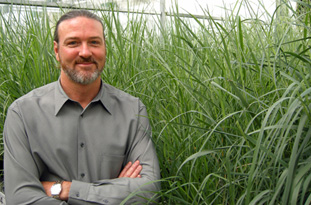Yesterday I took issue with this quote from Senate Energy Committee spokesperson Bill Wicker, about the mine accident in West Virginia:
“This is a mining accident,” says Bill Wicker, communications director for the Senate Energy Committee. “This issue involves the health and safety of our miners, not our energy future.”
As I wrote, it seems to me the dangers of coal mining should very much be part of our discussion about our energy future. I was puzzled, so I wrote Wicker to seek clarification. He (promptly and courteously) sent a response, which he said I could share:
Mining coal is a dirty, dangerous business. And you’re right — too many people die doing it. The coal industry needs to clean up its act (every pun intended) in many ways, including safety.
But people die regularly in car accidents. I don’t hear folks saying that traffic fatalities should be part of conversations about clean, green cars of the future. Automobile fatalities are seen mostly as a safety issue.
This weekend, five people died in an explosion at a refinery near Seattle. I haven’t heard of anyone suggesting that our nation stop making transportation fuels. However, people are saying that the oil industry needs to do a lot more to protect the safety and health of its workers and the communities in which it operates.
Closer to home, several people have died this year in multiple accidents on Metro. Does Metro’s track record call into question the role that public transportation can play in a cleaner energy future for our country … or is it more of a local management/safety problem?
I could go on and on with the examples, David, but won’t. Thanks for asking, and I hope this helps.
I think I better understand where Wicker’s coming from, but if anything, I disagree even more strongly now.
To put it in his terms: The fact that millions die every year from auto accidents should very much be part of conversations about the future of transportation. Driving two-ton machines around — even “clean, green” two-ton machines — is inherently dangerous. Road accidents take a horrible toll on American families and the economy. Should that not inform our decisions about what transportation options we want to pursue in the future? And the rate of injuries and fatalities on public transit should also be part of the discussion. How common are they relative to automobile injuries? What are the prospects for minimizing them? Could they be reduced at a reasonable cost? These questions are core to our transportation decisions, not peripheral. Creating more sustainable communities means creating safer communities, and that means, among other things, creating communities with fewer cars and more spaces devoted to people.
And yes, people regularly die in refinery accidents (and in coal mines). We can and should try to make them safer, but ultimately, working with fossil fuels is dangerous, not just to the public that suffers from the pollution but to the workers involved. It may not be a particularly compelling reason to leave fossil fuels behind — perhaps we think the benefits outweigh the suffering — but it should absolutely be part of the conversation.
Putting these kind of issues in a silo doesn’t help. Well, no, scratch that: it helps the fossil-fuel industry for the public to think of every incident of maiming and death, every oil spill or coal-ash-impoundment failure, as an unforeseeable “accident” that’s a “safety issue” incidental to larger policy choices. But it doesn’t help the clarity of our public dialogue or the quality of our policy choices.
Fossil fuels are dangerous. They have always killed people and will always kill people, no matter what safety measures we undertake. Confronting that fact clearly ought to be the first step we take in grappling with our energy future.


